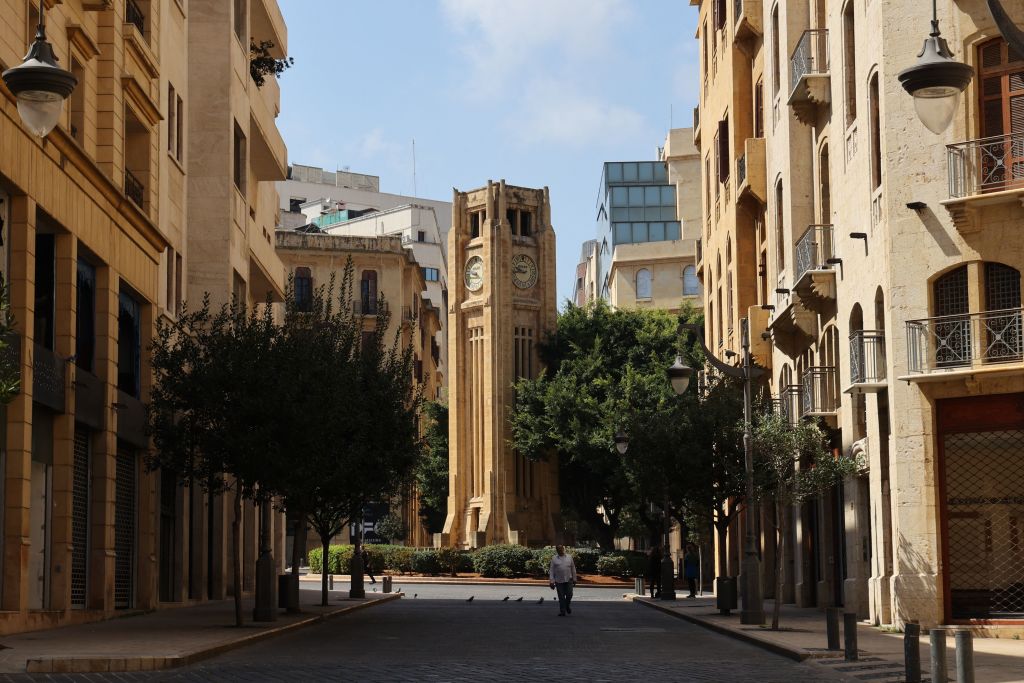Lebanon to reverse chaotic daylight savings change this week, prime minister says


A free daily email with the biggest news stories of the day – and the best features from TheWeek.com
You are now subscribed
Your newsletter sign-up was successful
Lebanon will begin daylight savings time on Wednesday of this week, the country's caretaker prime minister announced Monday, undoing his "unpopular" and chaotic choice to delay the change by a month, ABC News reports.
"The new daylight saving time will start at midnight Wednesday," Prime Minister Najib Mikati announced following a Cabinet meeting.
Lebanon was initially scheduled to change its clocks as normal, on the last Sunday in March. But a few days before the switch, Mikati suggested pushing the time change to April 21, a move believed to be in support of the country's Muslim population and its observance of the holy month of Ramadan. (Because of daylight savings, sunset would fall around 7 p.m. rather than 6 p.m., meaning Muslims would have to wait an additional hour before breaking their fast.)
The Week
Escape your echo chamber. Get the facts behind the news, plus analysis from multiple perspectives.

Sign up for The Week's Free Newsletters
From our morning news briefing to a weekly Good News Newsletter, get the best of The Week delivered directly to your inbox.
From our morning news briefing to a weekly Good News Newsletter, get the best of The Week delivered directly to your inbox.
But a number of organizations, including Lebanon's Maronite church, the country's largest Christian institution, objected to the change, arguing it would "cause chaos in the country and put it at odds with international standards," CNBC summarizes. Consequently, millions of citizens are now abiding by two different zones. Even Apple and Google are confused, CNBC continues — on iPhones and iPads, Lebanon's time zone is unchanged; on Google, the clock is one hour behind.
Though some have made light of the clock discrepancy by posting memes online, others, like Lebanese writer Mustapha Hamoui, believe the problem is a bit more insidious than it appears at first glance.
"The summer time issue is not a trivial matter, but a symptom of a deeper crisis of Christian political representation in Lebanon, and it deserves serious attention," Hamoui wrote on Twitter. "It was a grave insult for many Christians to witness Berri and Miqati decide on a matter that affects everyone's lives without even asking for their opinion."
A free daily email with the biggest news stories of the day – and the best features from TheWeek.com
Brigid Kennedy worked at The Week from 2021 to 2023 as a staff writer, junior editor and then story editor, with an interest in U.S. politics, the economy and the music industry.
-
 Switzerland could vote to cap its population
Switzerland could vote to cap its populationUnder the Radar Swiss People’s Party proposes referendum on radical anti-immigration measure to limit residents to 10 million
-
 Political cartoons for February 15
Political cartoons for February 15Cartoons Sunday's political cartoons include political ventriloquism, Europe in the middle, and more
-
 The broken water companies failing England and Wales
The broken water companies failing England and WalesExplainer With rising bills, deteriorating river health and a lack of investment, regulators face an uphill battle to stabilise the industry
-
 Nobody seems surprised Wagner's Prigozhin died under suspicious circumstances
Nobody seems surprised Wagner's Prigozhin died under suspicious circumstancesSpeed Read
-
 Western mountain climbers allegedly left Pakistani porter to die on K2
Western mountain climbers allegedly left Pakistani porter to die on K2Speed Read
-
 'Circular saw blades' divide controversial Rio Grande buoys installed by Texas governor
'Circular saw blades' divide controversial Rio Grande buoys installed by Texas governorSpeed Read
-
 Los Angeles city workers stage 1-day walkout over labor conditions
Los Angeles city workers stage 1-day walkout over labor conditionsSpeed Read
-
 Mega Millions jackpot climbs to an estimated $1.55 billion
Mega Millions jackpot climbs to an estimated $1.55 billionSpeed Read
-
 Bangladesh dealing with worst dengue fever outbreak on record
Bangladesh dealing with worst dengue fever outbreak on recordSpeed Read
-
 Glacial outburst flooding in Juneau destroys homes
Glacial outburst flooding in Juneau destroys homesSpeed Read
-
 Scotland seeking 'monster hunters' to search for fabled Loch Ness creature
Scotland seeking 'monster hunters' to search for fabled Loch Ness creatureSpeed Read
